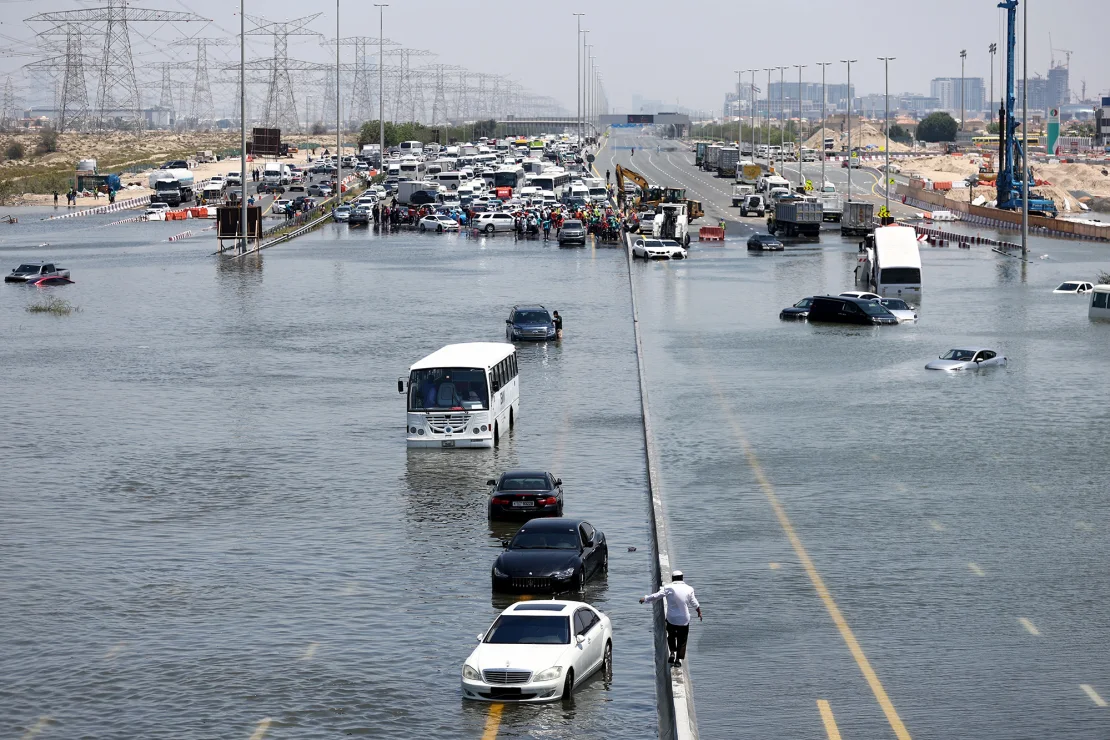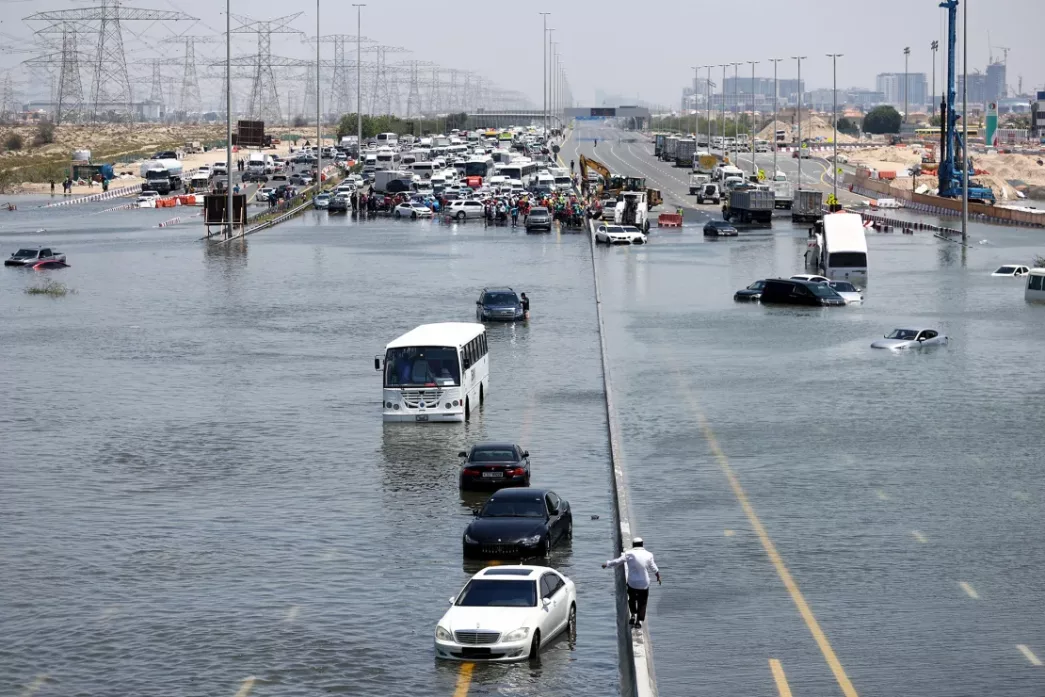A recent scientific analysis has shed light on the role of climate change in the unprecedented rainfall and deadly floods that struck the United Arab Emirates (UAE) and Oman. Researchers, as part of the World Weather Attribution initiative, have determined that human-induced global warming contributed to making extreme rainfall events in these regions significantly more intense.
The study, conducted by a team of 21 scientists, revealed that the heavy rainfall, which shattered records dating back 75 years, was exacerbated by climate change. The UAE, particularly Dubai, experienced an extraordinary deluge, with rainfall equivalent to over a year and a half’s average precipitation occurring in less than 24 hours.
While the precise impact of climate change on the floods cannot be quantified, researchers highlighted several factors linking global warming to the intensified rainfall. Warmer temperatures increase the atmosphere’s moisture-holding capacity, leading to more intense rain events. Additionally, shifting circulation patterns influenced by climate change contribute to heightened rainfall intensity.
Tragically, the floods claimed lives and wreaked havoc on both countries, causing widespread disruption and economic losses. The UAE and Oman faced extensive damage to infrastructure, transportation disruptions, and tragic loss of life, including schoolchildren swept away in floodwaters.
Experts underscored the urgency of addressing climate change to mitigate the risk of future extreme weather events. They emphasized the need to transition away from fossil fuels and adopt sustainable practices to curb carbon emissions and combat global warming effectively.
Despite the scientific consensus on the role of climate change, challenges remain in implementing meaningful action. Fossil fuel extraction continues unabated in many regions, undermining efforts to reduce greenhouse gas emissions and mitigate climate risks.
As the world grapples with the aftermath of devastating floods, the imperative to prioritize climate action becomes increasingly urgent. Continued reliance on fossil fuels threatens to exacerbate the frequency and severity of extreme weather events, underscoring the need for concerted global efforts to address climate change and safeguard vulnerable communities.

















